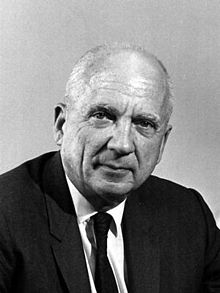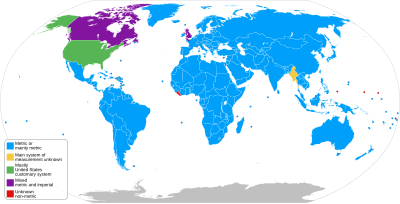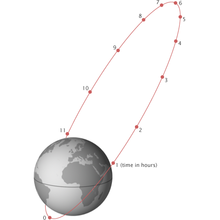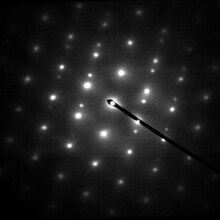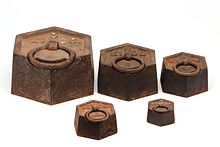Portal:Physics
| Physics Portal Main Page | Physics Textbook | Wikiprojects and things to do |
The Physics Portal


Physics is the natural science of matter, involving the study of matter, its fundamental constituents, its motion and behavior through space and time, and the related entities of energy and force. Physics is one of the most fundamental scientific disciplines, with its main goal being to understand how the universe behaves. A scientist who specializes in the field of physics is called a physicist.
Physics is one of the oldest academic disciplines and, through its inclusion of astronomy, perhaps the oldest. Over much of the past two millennia, physics, chemistry, biology, and certain branches of mathematics were a part of natural philosophy, but during the Scientific Revolution in the 17th century these natural sciences emerged as unique research endeavors in their own right. Physics intersects with many interdisciplinary areas of research, such as biophysics and quantum chemistry, and the boundaries of physics are not rigidly defined. New ideas in physics often explain the fundamental mechanisms studied by other sciences and suggest new avenues of research in these and other academic disciplines such as mathematics and philosophy.
Advances in physics often enable new technologies. For example, advances in the understanding of electromagnetism, solid-state physics, and nuclear physics led directly to the development of new products that have dramatically transformed modern-day society, such as television, computers, domestic appliances, and nuclear weapons; advances in thermodynamics led to the development of industrialization; and advances in mechanics inspired the development of calculus. (Full article...)
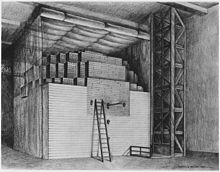
Chicago Pile-1 (CP-1) was the world's first artificial nuclear reactor. On 2 December 1942, the first human-made self-sustaining nuclear chain reaction was initiated in CP-1 during an experiment led by Enrico Fermi. The secret development of the reactor was the first major technical achievement for the Manhattan Project, the Allied effort to create nuclear weapons during World War II. Developed by the Metallurgical Laboratory at the University of Chicago, CP-1 was built under the west viewing stands of the original Stagg Field. Although the project's civilian and military leaders had misgivings about the possibility of a disastrous runaway reaction, they trusted Fermi's safety calculations and decided they could carry out the experiment in a densely populated area. Fermi described the reactor as "a crude pile of black bricks and wooden timbers".
After a series of attempts, the successful reactor was assembled in November 1942 by a team of about 30 that, in addition to Fermi, included scientists Leo Szilard (who had previously formulated an idea for non-fission chain reaction), Leona Woods, Herbert L. Anderson, Walter Zinn, Martin D. Whitaker, and George Weil. The reactor used natural uranium. This required a very large amount of material in order to reach criticality, along with graphite used as a neutron moderator. The reactor contained 45,000 ultra-pure graphite blocks weighing 360 short tons (330 tonnes) and was fueled by 5.4 short tons (4.9 tonnes) of uranium metal and 45 short tons (41 tonnes) of uranium oxide. Unlike most subsequent nuclear reactors, it had no radiation shielding or cooling system as it operated at very low power – about one-half watt. (Full article...)Did you know -

- ... that Aristotle's ideas of physics held that because an object could not move without an immediate source of energy, arrows created a vacuum behind them that pushed them through the air.
- ... that there are up to 6 candidates for the Theory of everything, minus String theory and Loop quantum gravity?
Selected image -
 Engraving of André-Marie Ampère | |
| Born | 20 January 1775 |
| Died | 10 June 1836 (aged 61) Marseille, France |
| Nationality | French |
| Known for | Ampère's circuital law, Ampère's force law |
| Scientific career | |
| Fields | Physics |
| Institutions | École Polytechnique |
| Signature | |
André-Marie Ampère (20 January 1775 – 10 June 1836) was a French physicist and mathematician who is generally regarded as one of the main founders of the science of classical electromagnetism, which he referred to as "electrodynamics". The electric current unit of measurement known as the ampere is named after him.
Related portals
May anniversaries
- May 1, 1960 - U-2 spy plane shot down
- May 6, 1937 - Hindenburg fire
- May 9, 1012 BC – Solar Eclipse seen at Ugarit, 6:09–6:39 PM.
- May 9, 1904 – City of Truro, a steam locomotive exceeds 100 mph (160 km/h).
- May 10, 1946 – V-2 rocket's first successful launch at White Sands Proving Ground
- May 10, 1960 – The nuclear submarine USS Triton completes Operation Sandblast, the first underwater circumnavigation of the earth.
- May 11, 1862 – American Civil War: The ironclad CSS Virginia is scuttled in Virginia.
- May 11, 1995 – In New York City, over 170 countries extend Nuclear Nonproliferation Treaty indefinitely, without conditions.
- May 11, 1998 – India conducts three underground nuclear tests, including a thermonuclear device.
- May 14, 2018 - Ennackal Chandy George Sudarshan died.
- May 16, 1960 - Theodore Maiman operates the first optical laser, at Hughes Research Laboratories in Malibu, California.
- May 16, 1969 – Venera 5, a Soviet spaceprobe, lands on Venus.
- May 17, 1865 – The International Telegraph Union is established.
- May 18, 1974 - India conducts underground nuclear tests, named Smiling Buddha.
- May 18, 1998 - Microsoft sued by US Government
- May 19, 1943 - RAF uses bouncing bombs in combat
- May 20, 1932 - Amelia Earhart crosses Atlantic Ocean
- May 26, 1972 - President Nixon and Leonid Brezhnev sign nuclear weapon non-proliferation pact.
- May 24, 1844 - First official telegraph message is sent by Samuel Morse.
- May 27, 1937 - Grand opening, Golden Gate Bridge
- May 28, 1998 – Pakistan conducts five underground nuclear tests, named Chagai-I.
Births
- May 6, 1872 - Willem de Sitter, physicist, mathematician, and astronomer
- May 9, 1931 – Vance Brand, astronaut
- May 10, 1746 – Gaspard Monge, mathematician
- May 10, 1788 – Augustin-Jean Fresnel physicist
- May 10, 1963 – Lisa Nowak, astronaut
- May 11, 1918 – Richard Feynman, physicist
- May 14, 1686 - Gabriel Fahrenheit, physicist and engineer
- May 21, 1921 - Andrei Sakharov, nuclear physicist
Deaths
- May 10, 1482 – Paolo dal Pozzo Toscanelli, mathematician and astronomer
- May 16, 1830 – Joseph Fourier, French scientist
- May 17, 1916 – Boris Borisovich Galitzine, Russian physicist
General images
Categories

Fundamentals: Concepts in physics | Constants | Physical quantities | Units of measure | Mass | Length | Time | Space | Energy | Matter | Force | Gravity | Electricity | Magnetism | Waves
Basic physics: Mechanics | Electromagnetism | Statistical mechanics | Thermodynamics | Quantum mechanics | Theory of relativity | Optics | Acoustics
Specific fields: Acoustics | Astrophysics | Atomic physics | Molecular physics | Optical physics | Computational physics | Condensed matter physics | Nuclear physics | Particle physics | Plasma physics
Tools: Detectors | Interferometry | Measurement | Radiometry | Spectroscopy | Transducers
Background: Physicists | History of physics | Philosophy of physics | Physics education | Physics journals | Physics organizations
Other: Physics in fiction | Physics lists | Physics software | Physics stubs
Physics topics
Classical physics traditionally includes the fields of mechanics, optics, electricity, magnetism, acoustics and thermodynamics. The term Modern physics is normally used for fields which rely heavily on quantum theory, including quantum mechanics, atomic physics, nuclear physics, particle physics and condensed matter physics. General and special relativity are usually considered to be part of modern physics as well.
More recognized content
Associated Wikimedia
The following Wikimedia Foundation sister projects provide more on this subject:
-
Commons
Free media repository -
Wikibooks
Free textbooks and manuals -
Wikidata
Free knowledge base -
Wikinews
Free-content news -
Wikiquote
Collection of quotations -
Wikisource
Free-content library -
Wikiversity
Free learning tools -
Wikivoyage
Free travel guide -
Wiktionary
Dictionary and thesaurus




